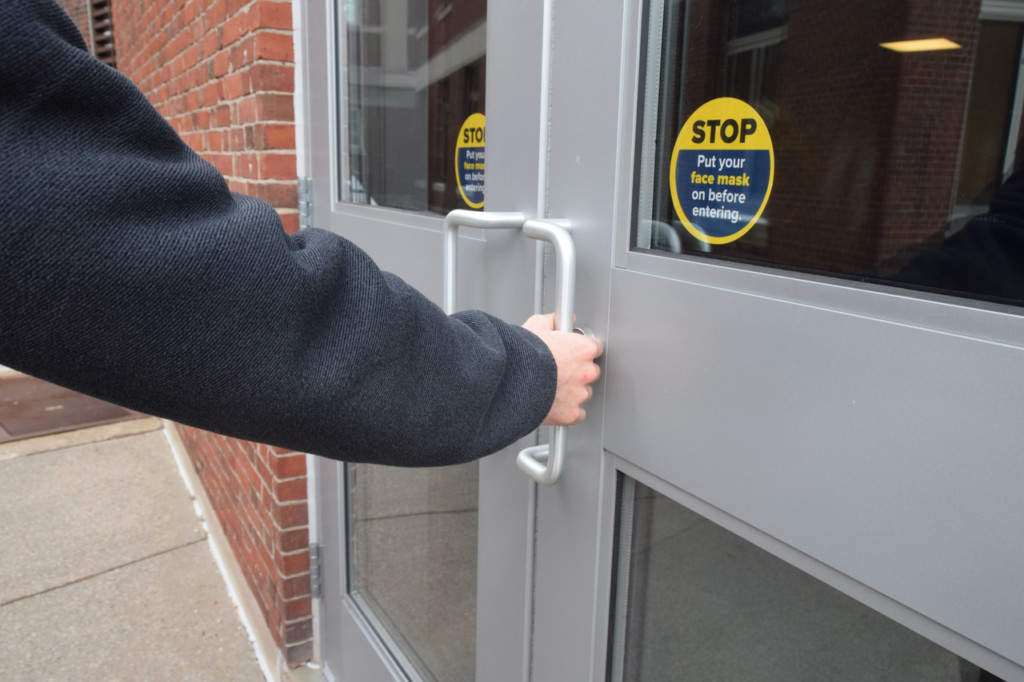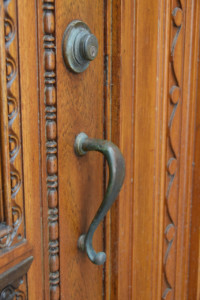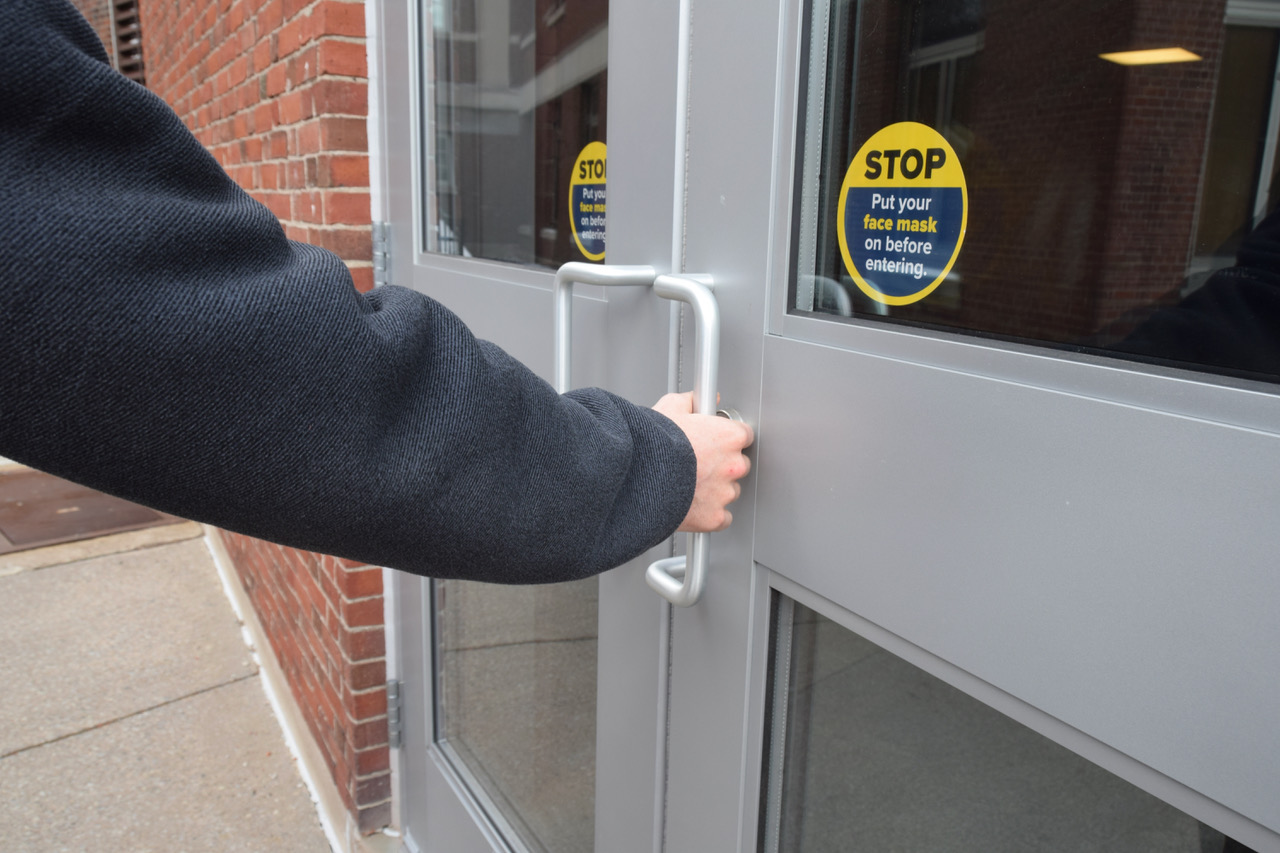Why is the third level door to the Wilson Commons tunnel locked? Why is Georgen locked? Why is LeChase locked? Why are the side doors to Gavett and Harkness locked?
It’s incredible to me that with all the big key carrying managers and Public Safety officers on this campus, essential doors still manage to be forever closed. Why bother shoveling a path to the WilCo tunnel door if it’s a dead end more often than not? It’s almost like they want me to walk up to it and realize I can’t get in, so that I have to walk all the way back around to another door, just to spite me personally.
Clearly, I like to joke around about this topic, but rerouting around these locked doors over the past few weeks has me thinking about the way physically disabled students go about their days.
As an able-bodied student, this extra walking is a minor disruption to me at best, and fuel for my endless spite at worst. But this isn’t the case for the hundreds of disabled people who will have to reroute to adjust for key carriers’ laziness and neglect.
Honestly, recalling the myriad ways the University fails disabled students, I shouldn’t be surprised.
Remember when Wilson Commons wasn’t up to ADA standards because the second floor entrance had a ramp outside, showing that the path was for people with physical disabilities, but then had no stair-less way to get from the entrance to Hirst Lounge, or the elevator?
That was only fixed last year after years of students complaining. Hilariously enough, the newly added elevator is frequently out of order (including as I write this article), rendering it useless and difficult to rely on. The common theme here seems to be a lack of both reliability and accountability.
Speaking of Wilson Commons, that ramp outside is unusable during bad snow (which, in Rochester, might as well be daily) due to a lack of prioritization from the school. It was seen last year covered in a sheet of ice, even though other staircases that are only available to able-bodied students are regularly salted and cleared. With all the resources available to this institution, how radical of an idea is it to believe that one of the most essential commons buildings should be consistently accessible to the entire student body? Able-bodied students can shuffle up and down snow-covered stairs, but people in wheelchairs cannot roll their chairs safely down a sheet of ice.
Then there’s the elevators — so slow and unreliably functional, they might as well not exist. College students have busy and demanding schedules, and their ability to climb stairs shouldn’t be a deciding factor when it comes to their day-to-day success. High traffic elevators such as the ones in Wilson Commons and Genesee are — once again — so frequently out of order they can’t be relied on. But for some students, there are no alternatives, and these modes of transportation have to be relied on.
My freshman year, two people on the seventh floor of our building had to use the elevator, but it was out of service. One was chronically disabled, the other only temporarily, with a sprained ankle. They had to be carried down seven flights of stairs. If two of my hallmates hadn’t been willing and able to help, what were they supposed to do?
People will make excuses for the University, implying that UR has better things to spend their time and money on than shooting higher than the bare minimum of ADA compliance. They’ll argue that nothing is ever perfect for disenfranchised groups, so take what you can get. These people are ableists.
As much as I personally am just annoyed by these issues, I should be using that annoyance to amplify the voices of those the University refuses to hear. Why have these issues persisted for so many years over so many campus locations? Because we have a culture of negligence, encompassing everything from locked doors to simultaneously unusable and essential elevators.



